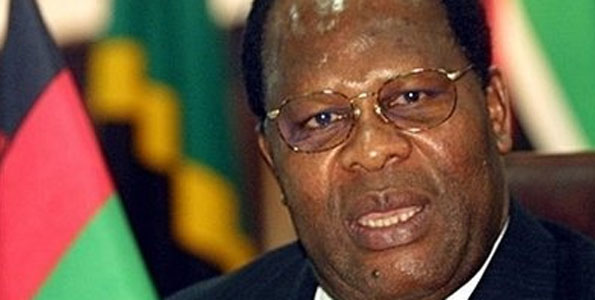Petroleum marketing companies have hailed government for moving towards the establishment of fuel reserves in the country but have proposed the involvement of the private sector in the operation of the reserves to lessen the burden on tax payers in the venture.
The government-run National Oil Company of Malawi (Nocma) has since indicated its willingness to consider working with strategic private sector partners where it is economically viable to do so “without losing sight of the reasons why this company was established”.
Oil Marketing Companies Association Chair Davies Lanjesi told the media in an interview that fuel reserves are important for any economy, but that how one structures and implements the reserves to be in place is the key question.
He said his association believes that the best way to operate reserves is through a public private partnership (PPP) where a private company will be given a concession to build and operate the structures.
“This option will not require the government to shoulder the burden of building the storage tanks and importing the product. The prospective investor will invest and be compensated from the pricing structure,” said Lanjesi, who is also managing director for Puma Energy Malawi, the country’s largest oil marketing company.
He said even without direct government involvement, the private sector can maintain reserves provided a correct incentive is given to enable them recoup their investment and make a reasonable profit margin from their investment.
He said sufficient industry margins and storage levy to enable the oil marketing companies finance the working capital and a well-structured automatic pricing mechanism that will facilitate proper compensation to the investors in case of fuel price reduction while keeping fuel in storage would motivate industry to venture into fuel reserves.
“The basic principal of any investment is to generate value above inflation rate,” said Lanjesi, who earlier complained about the low margins for oil companies in the pricing of fuel in the country.
He said in the early months after devaluation, oil companies were able to maintain some reserves as a result of foreign currency being made available and other financial instruments availed on the strength of availability of foreign exchange.
Lanjesi said currently, members of the industry have structural capacity to hold products that can be sold for over seventeen days that will require filling up all the available storage tanks.
“The association’s strategy is to ensure continuous flow of fuel into the country and the current storage would be sufficient to support the economy,” he said.
He said although global fuel prices are volatile, the association believes around U$20 million would be sufficient at current prices to buy the fuel for the reserves.
“The trick is to meet the daily consumption and set aside a budget for filling up the storage tanks. It has not been easy to achieve this balance for the last few years,” said Lanjesi.
He said it is neither practicable nor sustainable to expect investors to lose value of investment due to a system.
He said with fuel reserves in place, fuel price increases can be delayed over a period of selling the products in stockand provide some planning period for consumers and avoid panic buying of fuel.
He said, however, a PPP model would still be appropriate as there are always benefits in collaborative approaches to strategic issues.
“Partnership with government via the appropriate authorities is the winning formula,” said Lanjesi, adding: “However, clarity of roles for the players in the partnership is the key for success.”
He said the association expects public entities to formulate and implement an enabling business environment.
“The private investors will ensure continuous supply of fuel within the agreed policies since it is their core business,” said Lanjesi.
Minister of Energy Cassim Chilumpha could not be reached for his comment on the matter but Nocma General Manager Robert Mdeza told the media earlier that the government-run agency would consider working with strategic partners where it is economically viable to do so and without losing sight of the reasons why Nocma was established.
“Detailed studies and investment appraisals will be undertaken in this area before committing ourselves,” he said.

.jpeg&w=60&q=100&h=60)





.jpeg&w=60&q=100&h=60)




